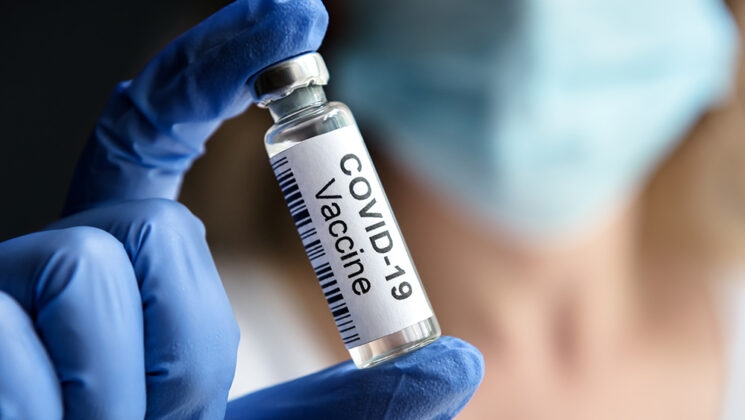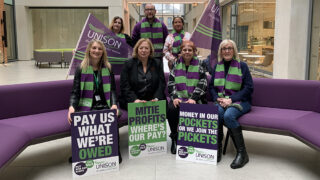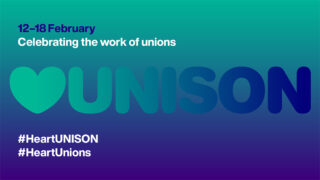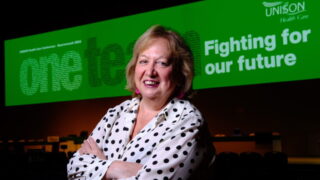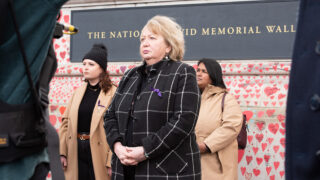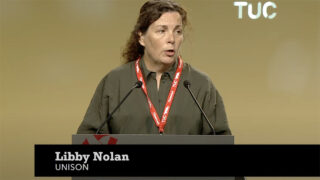COVID-19 vaccinations are rapidly being rolled out across the UK, and UNISON members are among some of the first people to receive them.
UNISON member Sharon Fowler is a third-year student nurse in Plymouth. As a Black woman, she’s been waiting for the vaccine to be available to her.
“I’m originally from South Africa, and as an ethnic minority, I am considered high risk. One of the reasons I agreed to have this vaccine was for peace of mind and protection. I’m so relieved I got to have it.”
In June last year, a Public Health England report on COVID-19 deaths confirmed the risk of dying among those diagnosed with COVID-19 was much higher for Black people.
Ms Fowler continues: “This vaccine gives me protection. I’ve treated people with COVID-19 and some of them are positive in the ward I work in. If you’re working on the frontline, you will have peace of mind. If you have any co-morbidities, this doubles up your chance of not getting the virus.
“I got the notification through my NHS email – not my student account. I used to do nursing for a trust and still remain on their list as bank staff. I received an email from them to say ‘we have now opened the slots for non-permanent staff members and you can book your appointment via the website’.”
Research from SAGE, the government’s scientific advisory group, found that up to 72% of Black people were unlikely to take a COVID-19 vaccine and that Pakistani and Bangladeshi individuals were the next most-hesitant ethnic group.
As Dr Salman Waqar, general secretary of the British Islamic Medical Association told the I news website: Vaccine hesitancy “isn’t something that’s come about out of the blue – it doesn’t exist in a vacuum. These communities have, for many years, struggled to get access, have equitable services, designed and tailored for them.”
A civic duty
For UNISON member Kebba Manneh, who works as a senior physiotherapy technician for Aneurin Bevan University Health Board, getting the vaccine is “fulfilling a civic duty.
“We have a collective responsibility to show up for each other at this time. We do everything collectively in this country. For example when we elect a member of parliament, we all show up. And this is the least we can all do to get back to some kind of normal life together soon.”
Mr Manneh is looking forward to getting his vaccine next Wednesday.
“As an NHS frontline worker, it’s important I take the vaccine – not only to protect myself, but my family, friends, colleagues and everyone within my community. The sooner we are all protected, the better. I work on the frontline in clinical settings, and we have clinical evidence that we can trust.

Kebba Manneh
“Black people are four times more likely to die from COVID-19 than white people, so it’s really important that Black UNISON members take this and encourage their families to as well. The vaccine gives us 80% protection from hospitalisation and serious illness – and that’s a lot better than no protection and risking death.”
The British Medical Association describes vaccine hesitancy as a “spectrum, with people being hesitant for a variety of reasons”.
It states that “people from marginalised groups – for example, people who are disabled and those who are lesbian, gay, bisexual and trans – have historically negative experiences of health care and are therefore less trusting of their medical professionals.
“People from ethnic minority groups have had historically differential treatment and outcomes from their healthcare, with Black women five times as likely to die in childbirth compared to white women.”
No reason to hesitate
Another demographic group mistrustful of the vaccine is young women. A survey of 55,000 people found that one in four women aged 18-34 said they would not take it.
For 23-year-old UNISON member Tay Ebsworth, there was nothing to hesitate about. Ms Ebsworth is a reablement support worker in Cambridge, who has been looking forward to being able to have her first jab.
“I was first in line as soon as the vaccine was available. It was a big relief because I have been dealing with COVID-19 patients in their homes for months. Even though I’ve had PPE, when you’re doing personal care, you can’t do social distancing.
“The whole vaccination process was fabulous and really well-organised,” she notes. “The council were proactive in letting us know our options. I got a link to a website to book my slot, and they reimbursed my time, mileage and parking.”
As mistrust and misinformation remains prevalent, access to accurate information on the COVID-19 vaccine is crucial – and that includes sharing experiences of vaccination.

